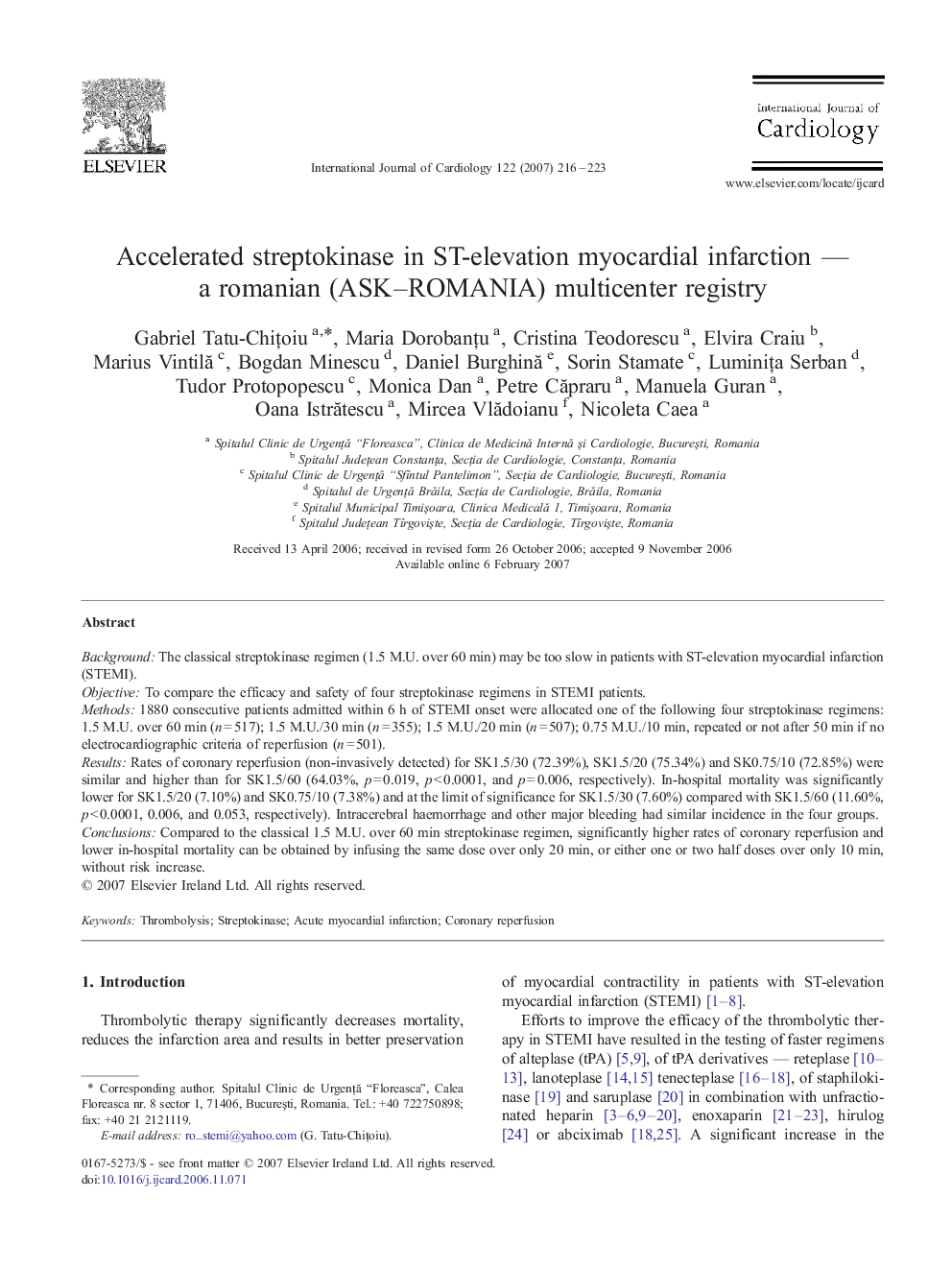| Article ID | Journal | Published Year | Pages | File Type |
|---|---|---|---|---|
| 2934388 | International Journal of Cardiology | 2007 | 8 Pages |
BackgroundThe classical streptokinase regimen (1.5 M.U. over 60 min) may be too slow in patients with ST-elevation myocardial infarction (STEMI).ObjectiveTo compare the efficacy and safety of four streptokinase regimens in STEMI patients.Methods1880 consecutive patients admitted within 6 h of STEMI onset were allocated one of the following four streptokinase regimens: 1.5 M.U. over 60 min (n = 517); 1.5 M.U./30 min (n = 355); 1.5 M.U./20 min (n = 507); 0.75 M.U./10 min, repeated or not after 50 min if no electrocardiographic criteria of reperfusion (n = 501).ResultsRates of coronary reperfusion (non-invasively detected) for SK1.5/30 (72.39%), SK1.5/20 (75.34%) and SK0.75/10 (72.85%) were similar and higher than for SK1.5/60 (64.03%, p = 0.019, p < 0.0001, and p = 0.006, respectively). In-hospital mortality was significantly lower for SK1.5/20 (7.10%) and SK0.75/10 (7.38%) and at the limit of significance for SK1.5/30 (7.60%) compared with SK1.5/60 (11.60%, p < 0.0001, 0.006, and 0.053, respectively). Intracerebral haemorrhage and other major bleeding had similar incidence in the four groups.ConclusionsCompared to the classical 1.5 M.U. over 60 min streptokinase regimen, significantly higher rates of coronary reperfusion and lower in-hospital mortality can be obtained by infusing the same dose over only 20 min, or either one or two half doses over only 10 min, without risk increase.
